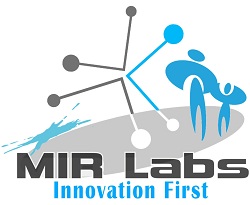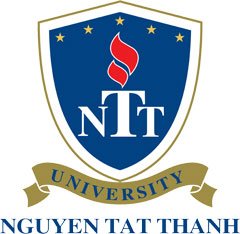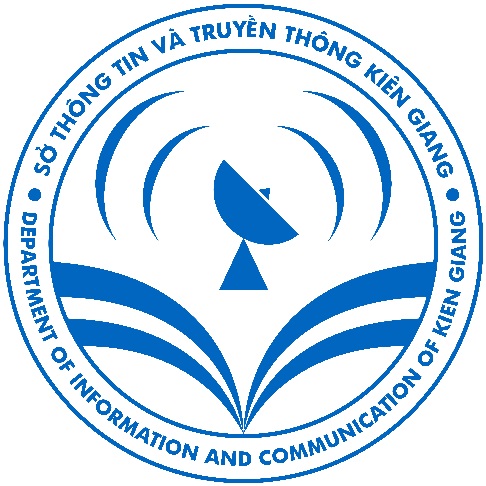Keynote Speech 1:
Dr. Emil Vassev,
Lero (the Irish Software Engineering Research Centre) at University of Limerick, Ireland
Talk Title:
Awareness in Software-Intensive Systems
Talk Abstract:
A large class of software-intensive systems, including those for industrial automation,consumer electronics, airplanes, automobiles,medical devices, and civic infrastructure, must interact with the physical world. More advanced systems, such as unmanned autonomous systems, don’t just interact butalso perceive important structural and dynamic aspects of their operational environment. To become interactive,an autonomous system must be aware of its physical environmentand whereabouts, as well as its currentinternal status. This ability helps intelligent software-intensive systems sense,draw inferences, and react.
Closely related to artificial Intelligence, awareness depends on the knowledge transferred to software-intensive systems so they can use it to exhibit intelligence. In addition to knowledge,artificial awareness also requiresa means of sensing changes so that the system can perceive both externaland internal worlds through raw events and data.The awareness mechanism uses raw datagathered via system’s sensors to recognize objects, project situations,track changes, and learn new facts.A successful awareness mechanismcan exhibit awareness at different levels of maturity and relevance.Noisy data can affect awareness relevance,which can lead to awareness results gradually changing over time and data input.
This talk is going to discuss different aspects of artificial awareness and an approach to building an efficient awareness mechanism providing a means of monitoring and knowledge representation with support to awareness reasoning and reasoning for self-adaptive behavior. The approach is formal and demonstrates how knowledge representation and reasoning help to establish the vital connection between knowledge, perception, and actions.The knowledge is integrated via knowledge representation techniques to build a computational model of the operational domain where symbols serve as knowledge surrogates for real world artefacts, such as system's components and functions, task details, environment objects, etc. The knowledge is used against the perception of the world to generate appropriate actions in compliance to goals and beliefs.
Short Bio:
Dr. Emil Vassev received his M.Sc. in Computer Science (2005) and his Ph.D. in Computer Science (2008) from Concordia University, Montreal, Canada. Currently, he is a research fellow at Lero (the Irish SoftwareEngineering Research Centre) at University of Limerick, Ireland where he is leading the Lero’s participation in the ASCENS FP7 project and the Lero's joint project with ESA on Autonomous Software Systems Development Approaches. His research focuses on knowledge representation and awareness for self-adaptive systems. A part from the main research, Dr. Vassev’s research interests include engineering autonomic systems, distributed computing, formal methods, cyber-physical systems and software engineering. He has published two books and over 100 internationally peer-reviewed papers. As part of his collaboration with NASA, Vassev has been awarded one patent with another one pending.
Keynote Speech 2:
Prof. Vangalur Alagar
Concordia University, Canada
Talk Title:
Cyber-Physical Systems: Potential Benefits and Challenges
Talk Abstract:
A cyber-physical system (CPS) is an integration of computation with physical processes. A network of embedded computers monitor, coordinate, and control the physical processes. Feedback loops with physical processes affect computations and vice versa. Just as the Internet revolutionized information sharing and interaction among humans, CPS is expected to revolutionize how we interact with the physical world around us. The NSF program description puts forth the grand vision that CPS is expected to transform our world with systems that respond more quickly, are more precise, can work in dangerous and inaccessible environments, will provide large-scale distributed coordination, are highly efficient, will augment human capabilities, and will enhance social well-being. In this talk an overview of these grand challenges in many economically and strategically vital domains will be given. Technical challenges in the modeling, design, construction, and verification of CPS will be discussed.
Short Bio:
Vangalur (Vasu) Alagar is Professor Emeritus in the Department of Computer Science and Software Engineering, Concordia University, Montreal, Canada. After graduating from McGill University, Canada, he started his academic career at Concordia University, serving it in different capacities over a period of three decades. He has published more than 150 scholarly articles in the areas of algorithms, languages, and systems. He has guided more than authored 100 graduate students. He has authored two text books, edited several books arising out of International Conferences, and edited two special issues of Theoretical Computer Science Journal. He continues to be active in research, and is guiding many doctoral students internationally. His current research areas are in the development of dependable Cyber Physical Systems, Context-aware Systems, and Service-oriented systems.
Keynote Speech 3:
Prof. Jason Jung
Yeungnam University, Republic of Korea
Talk Title:
Contextual Synchronization on Social Collaboration
Talk Abstract:
Since working environments are dramatically changing, it is difficult to support collaboration among people. In this talk, I will claim that the context should be efficiently synchronized. To efficiently support collaborations between people (agents) in real-time, we propose an ontology-based platform for acquainting the most relevant users (e.g. colleagues and classmates), according to their context. Thereby, we have modeled two kinds of contexts with semantic information derived from ontologies; (i) personal context, and (ii) consensual context integrated from several personal contexts. More importantly, we formulate measurement criteria to compare them. Consequently, groups can be dynamically organized with respect to the similarities among several aspects of personal context. In particular, users can engage in complex collaborations related to multiple semantics. For experimentation, a social browsing system has been implemented based on context synchronization.
Short Bio:
Jason J. Jung is an associate professor of Computer Engineering Department at Yeungnam University, Korea. He was a postdoctoral researcher in INRIA Rhone-Alpes, France in 2006, and a visiting scientist in Fraunhofer Institute (FIRST) in Berlin, Germany in 2004. He received the B.Eng. in Computer Science and Mechanical Engineering from Inha University in 1999. He received M.S. and Ph.D. degrees in Computer and Information Engineering from Inha University in 2002 and 2005, respectively. His research topics are knowledge engineering on social networks by using machine learning, semantic Web mining, and ambient intelligence. He has about 25 international journal articles published in Knowledge-Based Systems, Information Retrieval, Information Processing & Management, Knowledge and Information Systems, and Expert Systems with Applications. Also, he is an editorial member of Journal of Universal Computer Science and International Journal of Intelligent Information and Database Systems. Moreover, he has been editing 10 special issues in Information Sciences, Journal of Network and Computer Applications, Computing and Informatics and so on.
Keynote Speech 4:
Prof. Ashish Khare
University of Allahabad, India
Talk Title:
Context Awareness in Development of an Intelligent Surveillance System
Talk Abstract:
Security is a matter of high priority and the most common method used for this purpose is to employ video surveillance systems. However existing video surveillance systems are passive in nature and they need man power to run. Existing surveillance systems merely provide a record of events, once the event has occurred. Therefore, it is required to develop the Surveillance systems which should be active in the nature i.e. they can provide online knowledge from video data in real-time. In the proposed talk, we will discuss issues over obtaining online useful knowledge (conclusions) from video data. The steps for obtaining such knowledge from video data are – detection of objects (human and non-human), tracking of moving objects, recognition of objects, human action recognition and event understanding. In these all applications context awareness is very important. Change in context change the interpretation of scene. The primary objective of talk will be to discuss issues over these challenges and their solutions.
Short Bio:
Dr. Ashish Khare
Assistant Professor in Computer Science
Department of Electronics & Communication,
University of Allahabad, Allahabad - 211002, INDIA
E-mail: khare at allduniv dot ac dot in
Contact: +91-532-2658875 (R)
Education
D.Phil. - 2007, University of Allahabad, Allahabad, India.
M.Sc. (Computer Science) - 1999, University of Allahabad, India.
Past Experience
2007-2008, Post-doctoral Fellow
Gwangju Institute of Science and Technology, Gwangju, Korea
Research Interests
Image Processing and Computer Vision
Applications of Wavelet Transform
Human Action Recognition and Behavior Understanding
Soft Computing








































